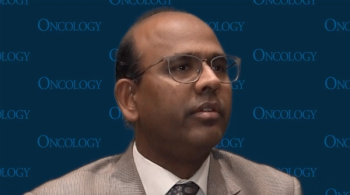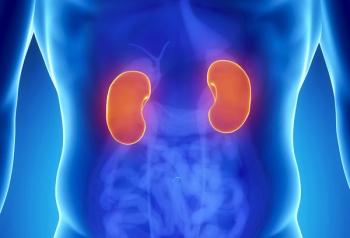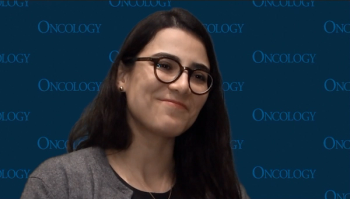
Prior data support the ability of PATHOMIQ_PRAD to predict patients at a high risk of biochemical recurrence and metastasis.

Your AI-Trained Oncology Knowledge Connection!


Prior data support the ability of PATHOMIQ_PRAD to predict patients at a high risk of biochemical recurrence and metastasis.

The CAN-2409 combination improved survival post-progression vs standard-of-care therapy alone in the phase 2 PaTK02 trial.

Factors such as World Health Organization status appeared to correlate with early mortality in an elderly non–small cell lung cancer cohort.

Next-generation clinical trials may address when to use CDK4/6 inhibition in patients with low-grade serous ovarian cancer.

Data from the phase 3 ZIRCON study support the biologics license application for TLX250-CDx in clear cell renal cell carcinoma imaging.

Sequencing different treatments in the first 3 lines of therapy represents a challenge in chronic lymphocytic leukemia, according to Deborah Stephens, DO.

The NRG-GY019 trial will assess chemotherapy plus letrozole vs letrozole alone as a frontline treatment for patients with low-grade serous ovarian cancer.

Support for the application comes from the efficacy data reported in the phase 1 ELM-1 and phase 2 ELM-2 trials.

Longer progression-free survival and more enduring responses occurred with avelumab/axitinib vs sunitinib in the phase 3 JAVELIN Renal 101 trial.

Care for brain metastases is constantly evolving, and now, physicians can use targeted systemic therapies as well as more focal radiation to treat them.

Treatment with mobocertinib produces clinically meaningful delays in time to deterioration among patients enrolled on the phase 3 EXCLAIM-2 trial.

Isatuximab plus bortezomib, lenalidomide, and dexamethasone demonstrated enhanced MRD-negativity rates and a PFS benefit in patients with newly diagnosed multiple myeloma.

Nearly 40% of low-grade serous ovarian cancers have RAS alterations, which are predominately KRAS mutations.

Support for the supplemental biologics license application is based on phase 3 KEYNOTE-689 trial data.

Outcomes observed in the phase 3 EV-302 trial are “transformative” for most patients with advanced or metastatic urothelial carcinoma.

There were no new safety signals with cemiplimab plus chemotherapy in the phase 2 EPIC-A trial, Challapalli stated.

A phase 1/1b trial found that the triplet combination elicited an ORR of 45.5% and a median PFS of 14.5 months in previously untreated clear cell RCC.

Patient-reported outcomes from CARTITUDE-4 showed a median time to sustained worsening of symptoms of 23.7 months with cilta-cel and 18.9 months with standard of care.

As a gynecologic oncology surgeon, Mario M. Leitao, MD, FACOG, FACS, highlights how his career has evolved through using robotic surgery, new fertility preservation techniques, and his contributions to the research field.

Phase 3 CheckMate-8HW trial results evaluating the combination in microsatellite instability–high or mismatch repair deficient CRC supported the decision.

Other ongoing urothelial cancer trials are assessing enfortumab vedotin–based combinations in the neoadjuvant setting.

The approval of sotorasib plus panitumumab is a “welcome step” in KRAS G12C-mutated colorectal cancer, according to Marwan G. Fakih, MD.

Data show that rucaparib yielded a median OS of 19.4 months compared with 25.4 months with chemotherapy in relapsed BRCA-mutated ovarian carcinoma.

Given resource scarcity, developing practice strategies for resource-constrained settings would require aid from commercial and government stakeholders.

Approximately 95% of those with a complete response to enfortumab vedotin plus pembrolizumab were alive after 2 years in the phase 3 EV-302 trial.

According to Megan Mullins, PhD, MPH, challenging cultural norms surrounding death and dying may reduce the receipt of low-value end-of-life cancer care.

When pembrolizumab is combined with immunotherapies, the incidence of grade 3 to 5 toxicities increases, especially with anti–CTLA-4 combinations.

Hematology oncology experts discuss recent developments in CAR T-cell therapies as well as bispecific therapies for the treatment of patients with R/R MM.

Thomas Powles, MBBS, MRCP, MD, highlighted fatigue, nausea, and peripheral neuropathy as toxicities observed with enfortumab vedotin plus pembrolizumab.

Data presented at 2025 ASCO GU reinforce the use of agents like nivolumab, cabozantinib, and darolutamide across different genitourinary malignancies.